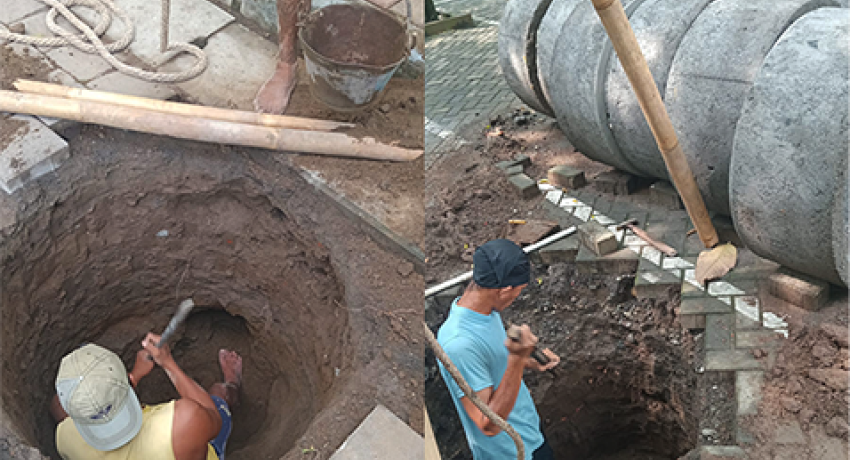Universitas Negeri Yogyakarta (UNY) has taken a strategic step in environmental sustainability by developing a Rainwater Absorption System (SPAH). This initiative aims to optimize rainwater management, reduce runoff, and utilize collected rainwater for non-potable purposes like campus irrigation and sanitation.
Vice Rector for General Affairs and Resources, Prof. Edi Purwanta, emphasized the ecological vision behind this project. “SPAH transforms rainwater into a valuable asset, reducing flood risks while promoting sustainable water use,” he stated on November 21. The system, designed to collect and filter thousands of liters of rainwater from campus buildings, also aims to decrease groundwater dependency and serves as a replicable model for broader community implementation.
The SPAH project involves collaboration among faculty, students, and technical staff, offering hands-on learning opportunities, particularly for students in civil engineering, environmental studies, and geography. Yarso Nurbowo, S.Pd.T, a staff member from the Facilities Division, highlighted its educational potential, calling it a “living laboratory” that demonstrates how simple technologies can drive impactful environmental solutions.
UNY plans to install SPAH units across various faculties and facilities, aligning with its commitment to Sustainable Development Goal 6: ensuring sustainable water management for all. Beyond ecological benefits, the initiative seeks to raise awareness about water conservation amidst climate change and global water scarcity.
By advancing SPAH, UNY reinforces its role as a higher education institution committed to practical, sustainable





